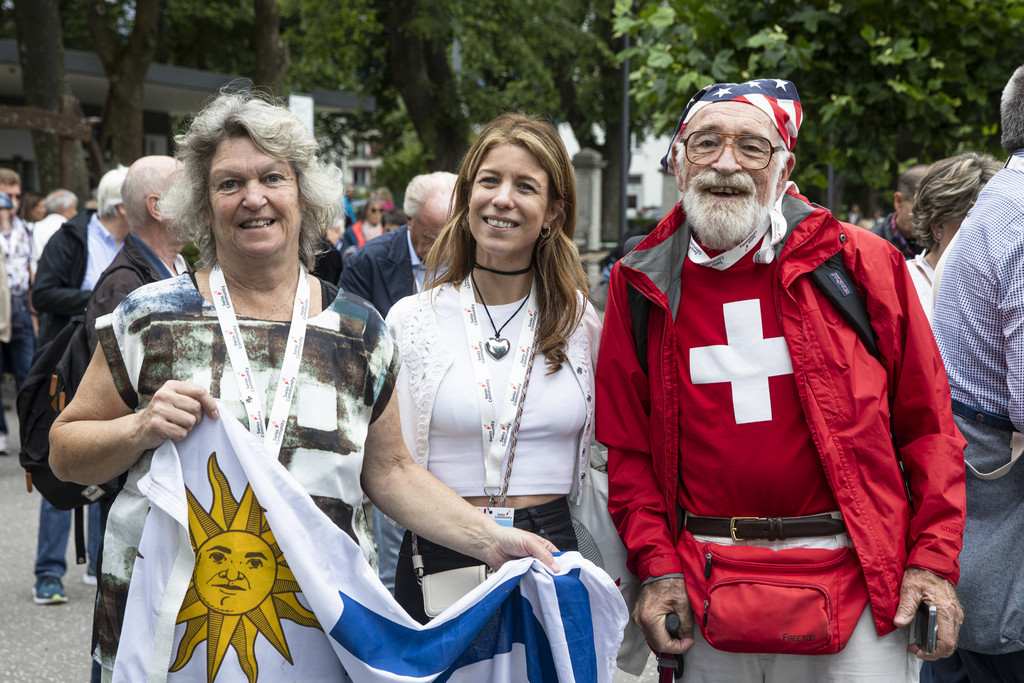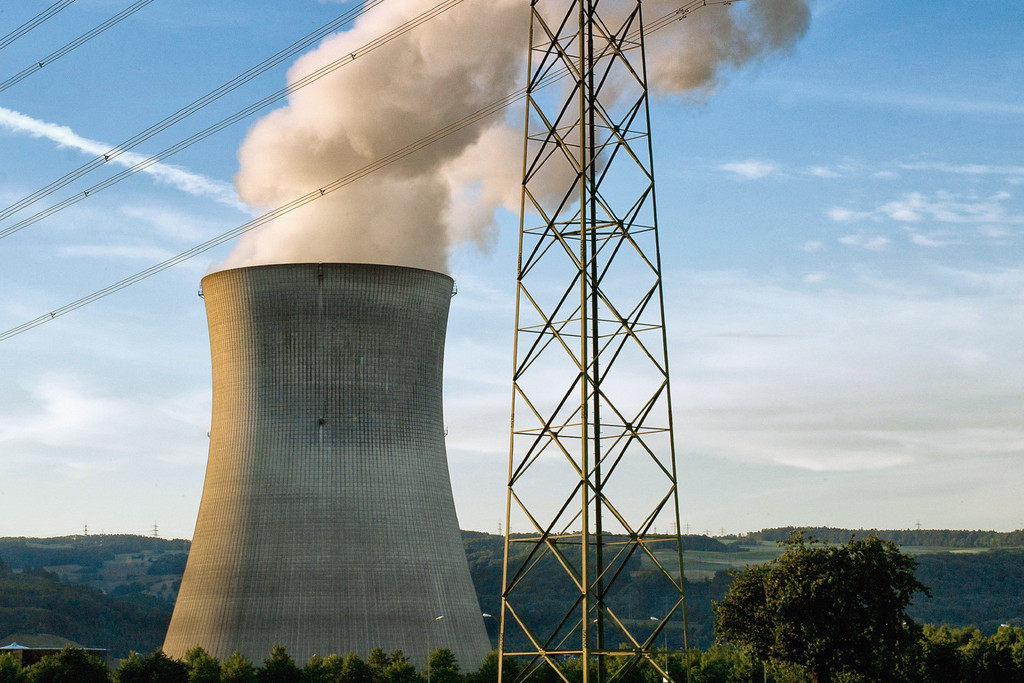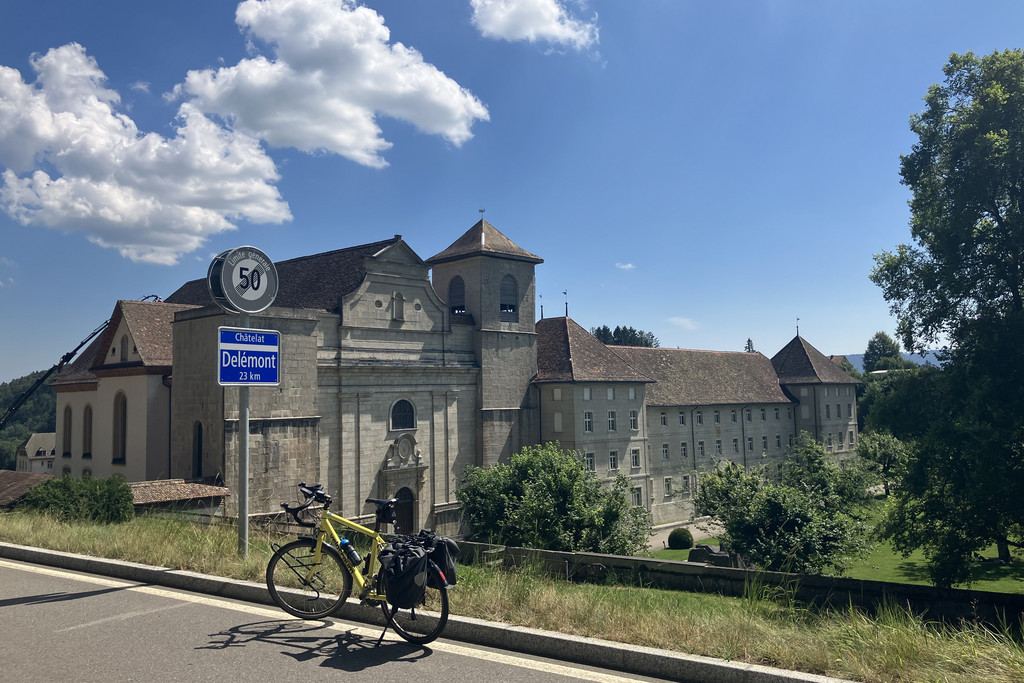![[Translate to English:]](/fileadmin/_processed_/4/6/csm_Spenden_Chang-Duong_Unsplash_a44ae9f16e.jpg)
Thank you! Your donations helped us to keep going

Discussion: Swiss Abroad are “spongers”?

Discussion: The nuclear debate reignites

Discussion: Jura

Discussion

Discussion: Strong response to our “big wolf hunt” article

Discussion


I am horrified by the attitude of many people who arrogantly scoff at the suffering of millions of refugees. Allow me to ask – as I help to provide support for Syrian refugees in Germany – who will plug the hole that will open up in the economically active population over the coming decades owing to demographic change? Here in the Black Forest region many of my colleagues – hoteliers, restaurateurs etc. – are grateful for the new workforce. The Syrians may have a different faith but as a rule they are no cleverer or less intelligent than the local workforce. And believe it or not, my female employees and I greatly appreciate the new respect shown towards us. For months we have no longer had to carry heavy boxes and nobody has made any offensive remarks or made us endure any unpleasant experiences owing to our gender. Our experience ranges from satisfied to highly impressed and I can assure you that there have only been a few isolated negative incidents.
The Syrian refugees are predominantly well educated and can be integrated into the Swiss employment market within a short period of time. First and foremost, Switzerland needs engineers and doctors as more and more Swiss people are deciding not to pursue these career paths. And there is no such thing as “bogus refugees”. It is obviously easier for wealthier people to leave their native country. But that does not mean they did not fear for their lives at home.
Millions of people had no choice but to leave their homeland. To see that you only need to look at images of the bombed-out Syrian cities of Homs or Aleppo. Or the destroyed hospitals in the Kurdish-controlled zone. The second major drama is currently being played out in the opinion columns. With few exceptions, we find a mixture of alleged facts and sometimes rash assumptions. And as if that were not bad enough, the debate is shifting towards xenophobic, racist and entirely disrespectful invective. Hatred will not resolve any of the problems. If we wish to prevent a complete fiasco, we must now seek ways of protecting refugees from further misery and with all our strength combat the causes of the conflicts triggering the migratory movements in the first place.
The huge influx of refugees from Syria and Africa could have been foreseen a long time ago. What action did the EU in Brussels take? None at all. It sat back and did nothing. The EU countries are now unable to cope because no preparations were put in place. Switzerland must avert such a dilemma. The borders will unfortunately have to be closed for a certain period in order to get to grips with the registration and rejection of applications. Those who are unable or do not wish to adapt should be immediately deported. I have been living in Thailand for some time and believe the Thai immigration system should also be deployed in Switzerland. Those who are here illegally are unceremoniously expelled. It is a rigorous and, in the view of some people, tough system. But it is an efficient one. Mind you, the deportation issue is somewhat different in Europe. Where should the deportees be sent if war and persecution is taking place in their native countries? The problems in Europe – and in Switzerland as well – will become more acute rather than easier to resolve.
I live in Japan where everything is geared towards mobility. Motorways are being expanded and the Hikari Shinkansen, which travels between Tokyo and Osaka every ten minutes, transports around 700 people each journey. The average speed is 150 km/h. Every day 3.5 million people use the Shinjuku railway station. If I want live scampi on the table in the morning, I can order them the day before from Kyushu, which is around 1,200 kilometres away, with guaranteed delivery. They are of course transported inexpensively by van. Does any of this make sense? Is it necessary? How much wastage of natural resources will it take to satisfy our never-ending appetite for more? Cars, holiday flights and HGV transport are all too cheap. And the next generation will have to pay for it. More traffic, vehicles and urban development? No, thanks! I voted against the second Gotthard tunnel.
Nothing is more desirable than road-to-rail transfer. Firstly, rail transport is less expensive than road. Secondly, in Switzerland – where the railways are completely electric – rail transport offers tremendous benefits in terms of environmental friendliness. In contrast, a new road tunnel represents destructive competition. The massive flow of tourists in Europe is already excessive. As much as possible should be done to curb it. Tourism is a good business if operated on a mass scale. Excessive tourism, however, destroys the environment. That’s why I voted against a second Gotthard tunnel.
Politicians often come up with some strange things – for example, the notion of abolishing the right to dual citizenship. Another equally significant issue, in my view, is that the Swiss Abroad are unable to take out affordable health insurance policies in Switzerland for old-age and survivors’ insurance (AHV) pensioners (based on basic insurance). Ordinary AHV pensioners if they reside in Switzerland are entitled to supplementary benefits that cost the state money. So what stands in the way of appropriate and affordable basic insurance?
Comments
Comments :
Health care costs abroad, especially in the Southern Hemisphere, must be far less costly than in Switzerland?
Luise Rae Southern Africa
Marlies Hug De Los Santos, Dominikanische Republik